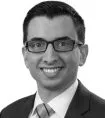New York employers and their employees should be following a new appeal working its way through New York's tax appeals process. Edward Zelinsky, a well-known tax law professor, has filed petitions with the New York Division of Tax Appeals, renewing his two-decade-old battle with the State of New York over its "convenience of the employer" rule.1 The core issue in the appeal is the proper sourcing of income earned while working remotely for a New York-based employer, both during periods covered by mandatory office shutdowns and, more generally, in the modern working environment. The case could have widespread implications for the tax liability, and wage withholding, for non-New York resident employees who work remotely or on a hybrid basis and their New York employers.
Currently, Arkansas, Delaware, Nebraska, Pennsylvania, and (to a limited extent) Connecticut, also apply the convenience of the employer rule to determine the portion of wages subject to state personal income tax. The application of the rule has also been the subject of legislation and litigation, in other jurisdictions. For example, New Hampshire and Massachusetts's recently petitioned the U.S. Supreme Court to intervene in their dispute over Massachusetts' sourcing policy for remote workers, adopted on a temporary basis during the COVID-19 pandemic2 and New Jersey's proposed legislation that seems intended to encourage New Jersey residents to challenge New York's convenience of the employer rule.3 Other jurisdictions will also be watching this challenge to New York's rule and taking note of whether the courts impose any limits on New York's asserted ability to impose extraterritorial taxation. Thus, while New York-focused, this litigation will have nationwide impact.
Background
New York State imposes its personal income tax on all income earned by residents. Conversely, nonresidents are only subject to tax on their New York source income. A ratio of days worked in New York over total days worked is generally used compute the portion of wages to be treated as New York source income.4
The New York State Department of Taxation and Finance (the "Department") has established a longstanding position, which has been sanctioned by New York courts,5 that for an employee whose assigned or primary office is in New York, any normal work day spent at a home office will be treated as a day worked outside the state only if the home office is a "bona fide employer office."6 To be a bona fide employer office, the office must either (i) contain or be near specialized facilities, or meet an assortment of highly specific requirements related to the employee and employer's use of and relationship to the work-from-home location.7 In practice, this threshold is extremely difficult to meet. On October 19, 2020, the Department issued guidance stating that, notwithstanding the impact of the COVID-19 pandemic, the convenience of the employer test would continue to apply.8
Professor Zelinsky has previously challenged the application of New York's convenience of the employer rule without success.9 In petitions filed with the New York State Division of Tax Appeals, Professor Zelinsky once again asked for reconsideration of the state's application of the rule. The issues raised in the petitions include the sourcing of income earned by Professor Zelinsky, a nonresident of New York, for days spent working for Yeshiva University's Cardozo School of Law—a New York based law school—in 2019 and 2020. The petitions include a general challenge to the application of the rule in today's modern work world, as well as a challenge to the imposition of the rule in light of mandatory government and employer work from home orders in place during the COVID-19 pandemic. A virtual hearing was held on April 24, 2023, during which Professor Zelinsky waived his right to privacy.
Impact
The convenience of the employer rule—while around for over two decades—has had an increasing impact on employers and employees alike in recent years. First, applying the rule is challenging. The multifactor test is outdated (after all, it references the federal deduction for home office expenses, which was effectively eliminated for W-2 employees as a result of the 2018 Tax Cuts and Jobs Act). In addition, it has become more difficult for employers, workers and the Department to apply the test as technological change erodes the notion of a "primary office". As technology makes it easier to work remotely, many employers have hired employees with the intent that they work on a fully remote or hybrid basis. As this occurs more frequently, it becomes harder for the Department to treat such arrangements as being solely for the convenience of the employee. In the current market, many employers view remote and hybrid work arrangements as a tool to attract the best talent, as well as a means to control the costs of employer office space.
From an employer perspective, application of the rule is not only difficult, but creates hiring and employee retention difficulties. The impact of the rule is especially salient for smaller companies that do not have regional offices for their employees to designate as a primary office location. We have also seen application of the rule complicate claims for unemployment insurance for employers.From an employee perspective, the current rule often results in the continued taxation of individuals who moved out of New York region during the pandemic, but who still are associated with a New York office for administrative purposes.
Employers nationwide should watch this litigation, as it is likely to affect their withholding obligations in states that impose a convenience of the employer rule. Individuals who have been paying income tax in New York and another jurisdiction on the same wages, due to the application of the convenience of the employer rule by New York, should consider filing refund claims to protect their rights in the event that Professor Zelinsky's challenge is successful. In New York, such claims are generally due three years from the filing of the original return.
Footnotes
1. In the Matter of the Petitions of Edward A. and Doris Zelinsky, New York Division of Tax Appeals, Determination Nos. 830517 and 830681 (Hearing April 24, 2023). Copies of the petitions are available.
2. New Hampshire v. Massachusetts, 141 S.Ct. 2848 (2021).
3. S. 3128, 220th Legis., Reg. Session (NJ 2022).
4. N.Y. Comp. Codes R. & Regs. tit. 20, section 132.18.
5. In 2003, New York's highest court upheld the constitutionality of the convenience of the employer rule in a case also brought by Professor Zelinsky. See Zelinsky v. Tax Appeals Tribunal, 1 N.Y.3d 85 (2003), cert. denied, 541 U.S. 1009 (2004).
6. 20 NYCRR 132.18(a); TSB-M-06(5)I (May 15, 2006).
7. See TSB-M-06(5)I (May 15, 2006).
8. See Frequently Asked Questions about Filing Requirements, Residency, and Telecommuting for New York State Personal Income Tax, N.Y. Dept. of Taxation of Finance (October 19, 2020).
9. See Zelinsky v. Tax Appeals Tribunal, 1 N.Y.3d 85 (2003), cert. denied, 541 U.S. 1009 (2004).
This article is presented for informational purposes only and is not intended to constitute legal advice.

